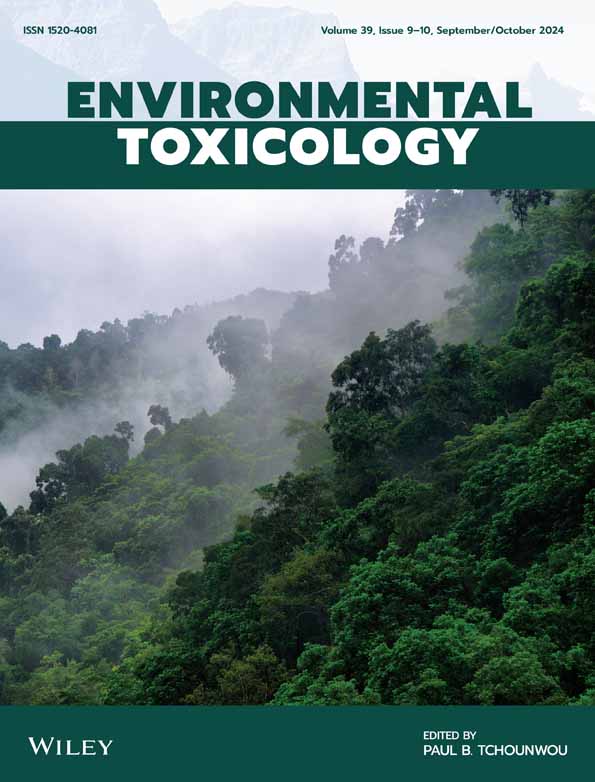Subacute toxicity assessment of diflubenzuron, an insect growth regulator, in adult male rats
Abstract
Diflubenzuron (DFB), an insecticide and acaricide insect growth regulator, can be used in agriculture against insect predators and in public health programs, to control insects and vectors, mainly Aedes aegypti larvae. Due to the lack of toxicological assessments of this compound, the objective of the present study was to evaluate the toxicological effects of subacute exposure to the DFB insecticide in adult male rats. Adult male rats were exposed (gavage) to 0, 2, 4, or 8 mg/kg of DFB for 28 days. No clinical signs of toxicity were observed in the DFB-treated animals of the experimental groups. However, there was an increase in serum levels of alanine aminotransferase in the group that received 8 mg/kg/DFB/day and urea at doses of 4 and 8 mg/kg/DFB/day, without altering other biochemical or hematological parameters. The subacute exposure to the lowest dose of DFB caused significant decrease in testis weight, daily sperm production, and in number of sperm in the epididymis in relation to the control group. However, no alterations were observed in the sperm morphology, testicular, epididymis, liver and kidney histology, or testosterone levels. These findings unveiled the hazardous effects of DFB on male reproduction after the subacute exposure and special attention should be addressed to the effects of low doses of this pesticide. ? 2014 Wiley Periodicals, Inc. Environ Toxicol 31: 407–414, 2016.





